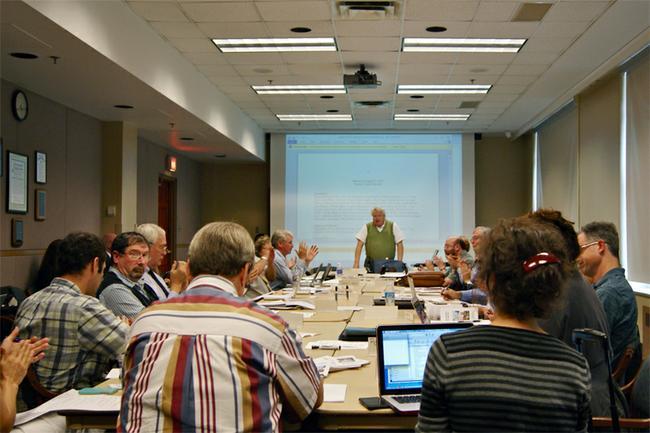When Deputy Provost Kenneth Dean began his presentation at Thursday’s MU Faculty Council meeting, he said it would take roughly five minutes. When he finished speaking and returned to his chair, nearly 20 minutes had elapsed.
Among the talking points causing Dean to go over his estimate was a new amendment to the Missouri Constitution that might affect religion in schools.
“We’re looking at (the amendment), we’re trying to find out how to deal with it,” Dean said. “(Faculty) just need to be aware it’s out there.”
The amendment, passed by Missouri voters in early August by an 87 percent margin, defends students’ rights to express their beliefs about religion in written and oral assignments free from discrimination based on the religious content of their work.
The amendment also states that “no student shall be compelled to perform or participate in academic assignments or educational presentations that violate his or her religious beliefs.”
Votesmart.org, a non-profit website that provides comprehensive information on political issues, wrote a summary of the newly passed amendment.
The website said the proposed constitutional amendment “guarantees a citizen’s right to pray and worship in all private and public areas, including schools, as long as the activities are voluntary and subject to the same rules and regulations that apply to all other types of speech.”
The summary also draws attention toward mandatory actions of public schools.
“A public school receiving state funds is required to display the text of the Bill of Rights of the United States Constitution in a conspicuous and legible manner,” the [Project Vote Smart website](http://www.votesmart.org) states.
Dean emphasized that as of right now, there is not much information on how the amendment will affect MU.
“Bottom line was we don’t know exactly what (it) means or how it would affect faculty teaching or other activities that go on in student education,” Dean said.
Some professors voiced concern. Plant sciences professor Craig Roberts had a question about the nature of the amendment.
“Can my colleagues in the biology department still teach evolution?” Roberts asked.
Dean said teachers can still stick to their course curriculum. Students are not required to believe anything in classes, just to show they have an understanding of a concept, Dean said.
Although the new amendment says nothing about the teaching of evolution, it brings up its main objectives in concise terms.
In its last four lines, the amendment states that it assures that “the right of Missouri citizens to express their religious beliefs shall not be infringed,” “school children have the right to pray and acknowledge God voluntarily in their schools” and “all public schools shall display the Bill of Rights of the United States Constitution.”
“We’re a public institution and this applies to us,” Dean said. “We hope in the weeks ahead there will be more guidance from the (UM System).”
In a situation like this, Dean said he can’t think of a better thing to do.
“If you have a situation that you are concerned about, get some advice,” Dean said.








